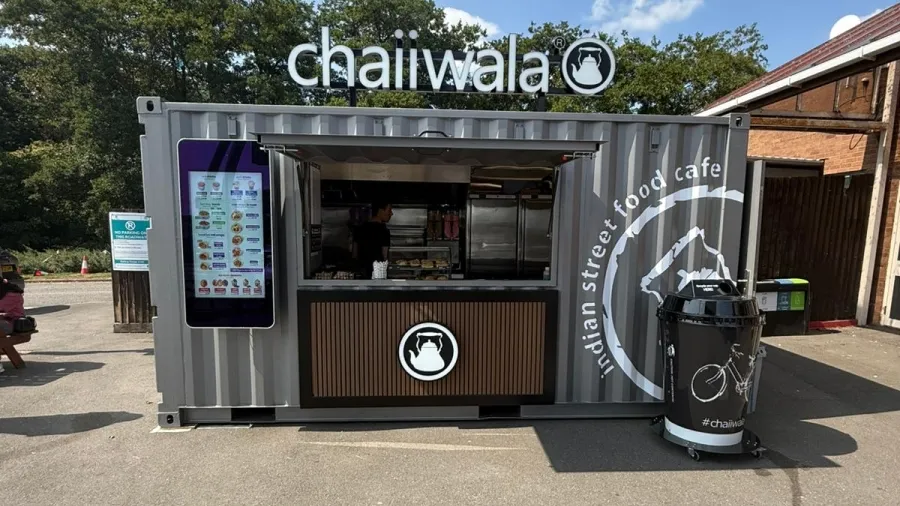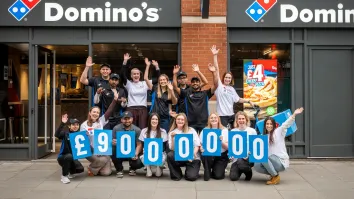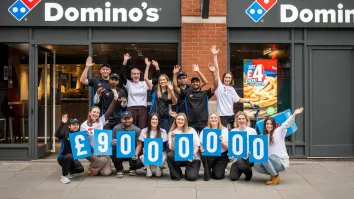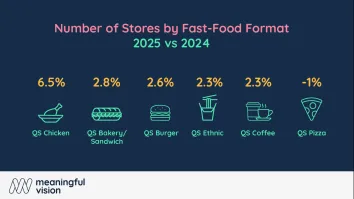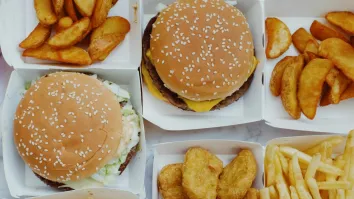![[L to R] Tim Charlton, Publisher of QSR Media, and Alasdair Murdoch, CEO of Burger King UK at the QSR Media UK Redcat Conference & Awards 2025](https://www.cmgassets.com/s3fs-public/styles/article_details_tablet_image/public/2025-07/alasdair-murdoch.jpeg.webp?itok=pBfkPuG9)
Burger King UK's renovation push lifts sales
Its CEO says updated stores are “invigorating” customer sentiment.
Burger King UK’s multimillion-pound remodelling of as many as 60 branches in the past five years is paying off with improved customer perception and robust sales growth, according to its big boss.
Renewing the fast-food chain’s image cost £250k to £500k per branch, some of which have been operating for four decades, CEO Alasdair Murdoch told the QSR Media UK Redcat Conference & Awards 2025 in London on 16 June.
“We’re seeing increased sales growth, not just because of reimaging, but also because customers are thinking, ‘Actually, that tired, slightly dilapidated old brand feels a bit fresher and more invigorated now,’” he said.
“It’s a rising tide, and that perhaps helps explain why we’re doing reasonably well at the moment,” he added, without providing sales figures.
The company, known for its signature flame-grilled burger, The Whopper, reported 5% sales growth in the first half of last year after returning to profit in 2023, Yahoo Finance reported in August 2024.
Burger King, backed by private equity firm Bridgepoint Group Plc, has 600 restaurants in the UK, half of which are managed by Burger King UK directly, whilst the other half are sub-franchises.
Murdoch said the combined effect of refurbishing about 60 sites and building 30 new ones delivers about a hundred refreshed touchpoints for customers each year. “That makes a real difference,” he said.
The company’s efforts have transformed its estate. As of 2025, 70% and 80% of Burger King UK’s restaurants now feature the updated look, feel, and kitchen infrastructure, in contrast to 2018 when only one location reflected the brand’s modern design vision.
The upgrades come amid intense competition in the UK quick-service restaurant (QSR) market, where international brands account for 49% of all chained outlets and 51% of customer visits, according to UK-based market intelligence firm Meaningful Vision.
Murdoch said visible customer-facing enhancements, such as digital drive-thru menus and updated signage, must be matched by operational improvements behind the scenes.
It’s about ensuring teams have the tools they need to operate effectively, he said. He acknowledged the challenge of scaling costly innovations across the business, especially with limited capital and the need for long-term return on investment.
Murdoch cited Sweetgreen, the US-based fast-casual salad brand that has streamlined kitchen operations through automation, as an example of operational innovation.
“I had a look at that Sweetgreen salad line, and I go, how does that work in terms of costs?” he asked. “I understand how it works technically, but how does it work from a capital investment point of view? Can you roll out 500 of those?”
Burger King UK is aiming for steady expansion, targeting 25 to 35 new restaurants annually. These will be evenly split between company-owned sites and those managed by franchise partners, he added.

